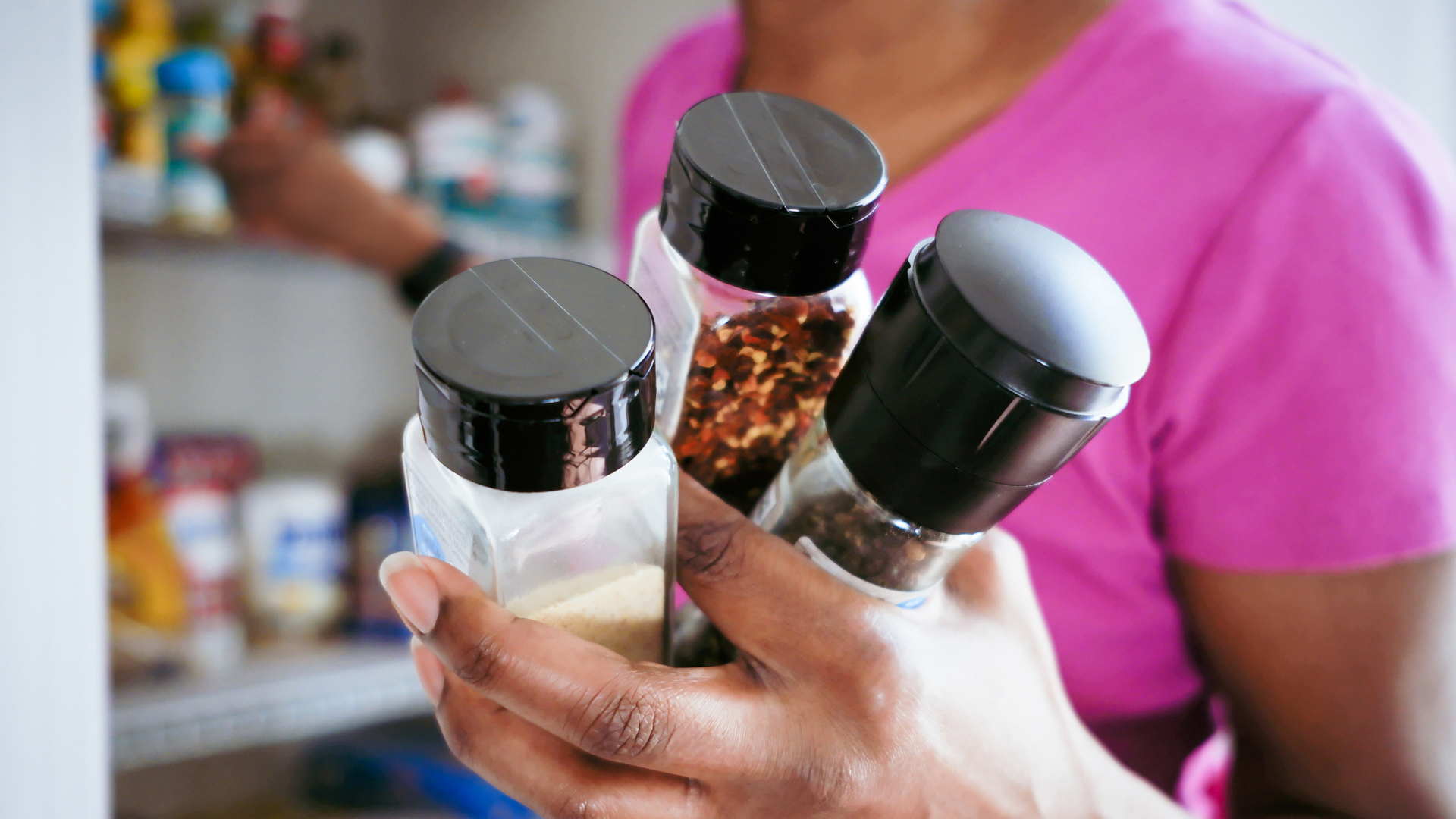
Start your week with achievable workout ideas, health tips and wellbeing advice in your inbox.
You are now subscribed
Your newsletter sign-up was successful
Knowing how to increase your appetite naturally can be tricky. Hunger is a primal instinct. It’s how our body signals its needs and communicates with us. When we lose our desire to eat, it’s often a sign that something is not right with our physical health or mental wellbeing.
Doctors tend to prescribe powerful appetite stimulants to cancer survivors or people who have undergone certain medical treatments. Although remedies like dronabinol or megestrol are deemed safe and effective, many people may be worried about their potential side effects. The good news is that it takes a few lifestyle tweaks to help you increase your appetite without resorting to prescription medications.
Forcing yourself to eat when you don’t want to is not a great solution. You may not feel like you’re able to eat much, but you can still boost your nutrient intake with the help of supplements. If you’re a woman, our guide to the best vitamins for women over 50 can help you to find a product that ticks all your boxes.
Below, discover six natural ways to increase your appetite to help you feel hungry again.
What causes a loss of appetite?
It’s normal to feel less hungry when the weather’s hot or after a hearty meal. Your body is skilled at regulating your energy intake according to the circumstances. So, when you experience a long-term appetite loss it’s best not to ignore it. Your body could be struggling with health issues that need urgent medical attention.
Decreased hunger is a symptom of many conditions, including liver disease, hepatitis, human immunodeficiency virus (HIV), chronic obstructive pulmonary disease (COPD) and underactive thyroid. According to a 2021 study in Cancer Treatment and Research Communications, it is also a common side effect of cancer and cancer treatments. Certain medications could also have a negative impact on the appetite.
More often, loss of appetite is rooted in one’s physiology. For example, according to findings in International Psychogeriatrics, not feeling overly hungry is a common experience among older people and is related to the aging process. Many women report struggling with their appetite during the first trimester of pregnancy too, while people tend to be put off eating when they’re going through bouts of acute stress. If you’ve ever had to sit through a difficult exam, you may remember the unpleasant sensation of a ‘nervous stomach’.
Start your week with achievable workout ideas, health tips and wellbeing advice in your inbox.
Indeed, there’s a strong connection between appetite and mental health. The American Journal of Psychiatry found that depression and anxiety disorders can have a significant effect on the way the brain responds to food cues. Also, conditions such as post-traumatic stress disorder (PTSD) can, as per findings in the journal Appetite, effectively interfere with nervous signalling and reduce the need to eat. Therefore, addressing your emotional wellbeing could be a necessary step to revive your hunger levels.
How to increase your appetite
Eat smaller meals more frequently
A first step to increase your appetite is to move away from eating three full meals a day. When you don’t have a healthy appetite, finishing a big meal may seem like a challenging task and it’s likely to demotivate you. Focusing on eating smaller meals more frequently not only appears more achievable but it may reduce the unpleasant sensation of a tight, full stomach. What’s more, it may help you establish a better eating routine.
“Eating at regular intervals or roughly the same time each day is a good way to keep your appetite strong,” says Rob Warns, a dietician and lifestyle medicine practitioner. He also discourages snacking in between meals. “Grazing is not recommended, as it typically will decrease overall appetite, as the foods consumed are usually of poor nutritional quality.”

Choose energy-dense, palatable foods
Appetite regulation is a sophisticated system that involves a complex interplay of brain signalling and hormonal activity. Hunger signals may be mostly generated in the gastrointestinal tract but the majority of them are expressed in the hypothalamus – a fairly small but highly important part of the brain. A report in Basic and Clinical Pharmacology and Toxicology showed that energy-dense, palatable foods offset normal brain appetite regulation, blunting the response to satiety signals and activating the reward system in the brain.
If you want to increase your need to eat, choose foods that are tasty, as well as rich in dietary fats and sugars. Moreover, you’re more likely to enjoy your meal if it’s presented nicely. Check out our menopause diet plan for some tasty, energy-dense meal ideas.
Schedule your meals
Humans rely on hunger cues to know when the right time to sit down for a meal is. However, with low appetite your body will not produce enough normal hunger signals and you may simply forget to eat. Scheduling your meals and setting a reminder at each mealtime may help you eat more regularly. It may also be a deciding factor in developing a healthy meal routine.
Add more herbs and spices to your meals
Herbs and spices are now mostly used as flavor enhancements and food preservatives. However, for centuries they’ve been extensively used in alternative medicine due to their wide-ranging health-promoting properties. Certain herbs and spices may have a beneficial influence on the digestive system and appetite regulation.
For example, as reported in Alternative and Complementary Therapies, carminative herbs and spices are a type of plant that is great at reducing unpleasant bloating, flatulence and the feelings of “heavy stomach”. They speed up the passage of food in the body and facilitate fat digestion by stimulating the production of bile. As a result, they may help increase your appetite. Good examples of carminative herbs and spices include fennel, peppermint, black pepper, coriander, mint, ginger and cinnamon.

Bitter tonics are another example of appetite-stimulating herbs, according to findings from Food Chemistry. Plants such as gentian, blessed thistle and centaury increase the production of digestive enzymes and help with bowel movements. Certain herbal drinks can also help with reviving your hunger, such as chamomile tea.
Try appetite stimulating supplements
Certain nutrient deficiencies may contribute to poor appetite. Zinc is a perfect example. This essential mineral is responsible for crucial functions in the body, including building proteins, healing damaged tissues and supporting a healthy immune system. If your diet lacks a sufficient amount of zinc you may also experience appetite problems and taste disturbances. This is more evident if you are well into your 50s or 60s. Supplements that contain this nutrient may help increase your desire to eat and make eating a more enjoyable activity.
Another example of a natural appetite stimulant is thiamine (vitamin B1). Thiamine is a key factor in regulating carbohydrate metabolism, muscle contraction and nerve signalling. It’s also been demonstrated, in the journal Neuroscience, how its deficiency can decrease appetite and increase resting energy expenditure. Thiamine can be found in many foods, including eggs, meat, legumes and dairy products, as well as vitamin supplements.
Exercise before meals
Appetite regulation is closely linked to exercise. “Incorporating physical activity into our daily lives has been shown both acutely and chronically to have an influence on regulating our appetite,” says Dr Brian Carson, a senior lecturer in exercise physiology, and the head of science and innovation at Whole Supp.
Physical activity largely contributes to increased metabolic rate and higher muscle mass - two important factors for elevating the calorie expenditure and stimulating appetite. However, as the Journal of Endocrinology has highlighted, it’s important to exercise regularly to see the best results.
To improve your appetite, try doing light exercises before eating your meals. How about joining a lunchtime fitness class? This low-impact walking workout can burn 200 calories in just 20 minutes too.

Anna Gora is a Health Writer for Future Plc, working across Coach, Fit&Well, LiveScience, T3, TechRadar and Tom's Guide. She is a certified personal trainer, nutritionist and health coach with nearly 10 years of professional experience. Anna holds a BSc degree in Nutrition from the Warsaw University of Life Sciences, a Master’s degree in Nutrition, Physical Activity & Public Health from the University of Bristol, as well as various health coaching certificates. She is passionate about empowering people to live a healthy lifestyle and promoting the benefits of a plant-based diet.
